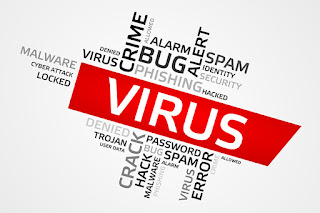CYBER LAW & CYBER ETHICS
Cyber law and Computer ethics
1) What is cyber law?Ans:
The law which governs the legal issues in the cyber space regarding the
internet or WWW for digital data processing and transaction is called
cyber law.
2) Write down the importance of cyber law.Ans:
The importance of cyber law is that it controls cyber-crime and misuse
of computer. It also touches almost all aspects of transaction and
activities on the cyber space.
3) What is cyber space?Ans: A virtual space created by computer network, internet and telecommunication is called cyber space.
4) What are the major laws included in cyber law?Ans: The major laws included in cyber law are:
i) Electronic and Digital Signature law
ii) Computer crime / Cyber crime law
iii) Intellectual property law
iv) Data protection and privacy law
v) Telecommunication law
i) Electronic and Digital Signature law
ii) Computer crime / Cyber crime law
iii) Intellectual property law
iv) Data protection and privacy law
v) Telecommunication law
5) Why is cyber law needed?Ans:
Cyber law is needed to legalize the transaction through electronic
media to control various types of electronic frauds and to punish a
person who does criminal activities through electronic means especially
on computers.
6) What is cyber-crime?Ans: Cyber-crime is an illegal actions involved in any computer, computer system or over all computer network like the internet.
The example of computer crime are:
- Software piracy
- Hacking
- Cracking
- Pornography
7) What is a digital signature?
Ans:
A digital code (generated and authenticated by public key encryption)
which is attached to an electronically transmitted document to verify
its contents and the sender’s identity.
8) Write down the importance of digital signature.Ans:
The importance of digital signature is that it provides legal framework
to facilitate and safeguard electronic transaction in the electronic
media.
9) What is computer ethics?Ans:
Computer ethics refers to a kind of international law that gives
awareness to the user regarding the immoral behaviour and activities in
the computing field.
Computer
ethics refers to follow the rules and regulation of computer technology
and not to harm other computer users knowingly or unknowingly.
10) Define encryption and decryption.Ans: The process of encoding (scrambling) information in such a way that it is unreadable to all is called encryption.
The process of restoring encrypted data to its original form is called decryption.
The process of restoring encrypted data to its original form is called decryption.
11) What is hacking?Ans: Computer hacking means stealing and destroying other data, information, files and program.
12) List some commandments of computer ethics.Ans: Some important commandments of computer ethics are:
i) You should not use computer to harm other people.
ii) You should not search the files or records of other people.
iii) You should not destroy, steal and use others computer password of other people.
iv) You should not steal, destroy, erase or edit personal or group records.
v) You should not disclose the secrecy of computer.
i) You should not use computer to harm other people.
ii) You should not search the files or records of other people.
iii) You should not destroy, steal and use others computer password of other people.
iv) You should not steal, destroy, erase or edit personal or group records.
v) You should not disclose the secrecy of computer.
13) What are the major issues address by cyber law?
Ans: The major issues addressed by cyber law are:
- Criminal activities on cyberspace.
- Electronic commerce, online transactions and digital signature.
- Intellectual property right, copyright violation
- The provision of e-governance by promoting electronic recording system
14) What is salami saving? Explain
Ans:
When a programmer alters a program so that it subtracts a very small
amount of money from each account and alters the fund to the embezzler’s
account is called salami saving.
15) What are intellectual property rights?
Ans:
The legal property rights of someone over his creations of the mind
both artistic and commercial are called intellectual property rights.
16) Explain in short data security and privacy law.
Ans: Data protection and privacy refers to the process of ensuring the preservation, integrity and reliability of data.
The law related to it is called data security and privacy law.
17) State any five major aspects of cyber law of Nepal 2004.
Ans: Five major aspects of cyber law of Nepal 2004 are:
- Provides legal status for various banking transaction through electronic media, which will be instrumental in boosting economic activities throughout the world via internet.
- Provides a legal framework to facilitate and safeguard electronic transactions in electronic medium.
- Provides a detailed provision for the controller of certifying authorities to regulate certifying authorities.
- Provides punishment who conducts cyber crime.
- Provisions under the act in order to control and regulate the criminal activities apparent in Nepal cyber environment.
Advertisements



Comments
Post a Comment